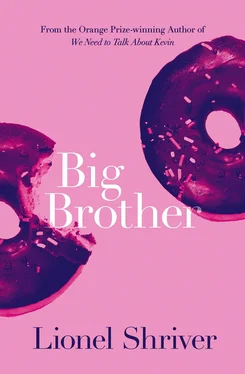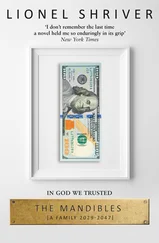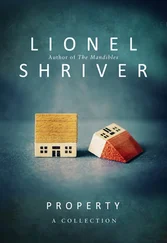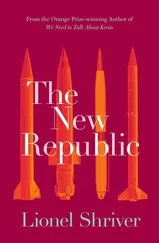Our house . Of course, it was our house.
Having rented most of my life, I still hadn’t shaken the impression that this address on Solomon Drive belonged to someone else; I kept the place fanatically neat as if the real owners might walk in any time unannounced. The house was larger than we required; the kitchen’s plenitude of cabinets invited the purchase of pasta- and bread-making machines that we’d use once. Deserving of the contemptuous tag McMansion , our new home had been an overreaction to the cramp of Fletcher’s tract rental, one of those “temporary” resorts men seek post-divorce, from which unless a new woman puts her foot down they never move. I’d been flushed with awe that I could suddenly afford to buy a house, in cash no less, and in some ways I bought it simply because I could.
Also, I’d wanted to find Fletcher a workspace. Furniture was his passion, so I bought his passion for him. Naïve in the ways of money, I couldn’t have known beforehand how much he would resent me for it.
Earlier in our marriage, Fletcher had worked for an agricultural company that made genetically modified seed. I’d been keen to enable him to quit because he wasn’t a natural salesman—not from environmentalist aversion to fiddling with nature, or political outrage that corporate America wanted to patent what was once literally for the picking. I didn’t hold many opinions. I didn’t see the point of them. If I opposed the production of nongerminating disease-resistant corn, it would still be sold. I considered most convictions entertainment, their cultivation a vanity, which is why I rarely read the newspaper. My knowing about an assassination in Lebanon wouldn’t bring the victim to life, and given that news primarily aggravated one’s sense of helplessness I was surprised it was so widely heeded. Refusal to forge views for social consumption made me dull, but I loved being dull. Being of no earthly interest to anyone had been a lifelong goal.
In kind, this brick neocolonial had no character. It was newly built, its maple floors unscarred. I adored its unstoried blankness. The sockets were solidly wired, and everything worked. I’d never courted character on my own account, save in the sense of being disinclined to shoplift or cheat on my husband; Edison was the one who sought the designation “a real character,” and he could have it. I gloried in anonymity and by then violently resented that the glare of an uninvited public spotlight had turned me into someone in particular for other people. (For pity’s sake, you’d think after purposefully burying myself in the very middle of the country the least I could expect was to be inconspicuous.) I had enough history, and with the lone exception of Edison himself my instinct regarding the past was to draw the shade.
The big, lobotomized house formed the perfect neutral backdrop against which Fletcher’s furniture could stand out. At this point my husband’s handiwork had replaced most of the department-store appurtenances of our original combined households. (This joining of domestic forces was the first time in my life that someone had helped me move. With ferocious efficiency, Fletcher could carton a room in an afternoon, which has to be even more romantic than prizing the fiddly scraps from the food processor.) So lithe were his creations that whenever I walked into the living room the furniture seemed to have been grazing on throw rugs moments before. Its back corners curled like stag horns, bowed legs prancing on pared feet, the couch was weighted down with pillows, without which the skittish creature might have cantered out the door.
Though Fletcher liked to think he was improving, my favorite piece was one of his first. We called it the Boomerang. Its red leather cushion was oval. The rail forming the contiguous arms and back slooped high on the right, then arced down on the left, until the far end of the left-hand arm almost touched the floor. The chair looked as if it had been hurled. The slats supporting the great rising back line were also curved—laminated Macassar ebony, rosewood, and maple that he’d soaked for a week to bow. The Boomerang was a talisman of sorts. Most people who’ve refined a skill may cling to such a touchstone: early proof they’ve got the goods. The object to which they can always refer when a current effort is foundering: See? If you can do that, you can do anything. I’d no equivalent myself, because I didn’t care about product. I liked process. Be it a marmalade cake or the absurd merchandise I sold then, output was chaff to me the instant of completion. I found finishing projects perfectly awful.
After scrubbing the beige film from the rice pan, I peered out the front window. It had started to rain, but that never drove my intrepid husband home. Safe in my solitude, I crept upstairs to my home office and booked a plane ticket between LaGuardia and Cedar Rapids, choosing an arbitrary return date that we could always change. I wrote a check for five hundred dollars with “incidentals” scrawled in the lower-left-hand corner. Enclosing the check and e-ticket printout, I addressed a FedEx mailer to Edison Appaloosa, care of the address Slack had dictated that morning, and booked a pickup on my account.
My having bought this house with the proceeds of my offbeat business two years before might have meant that I had the “right” to install my brother in its guest room without permission. But pulling fiscal rank struck me as vulgar and undemocratic. There were three Feuerbachs in that house, and only one Halfdanarson.
What called me to run roughshod over Fletcher’s opposition was something else. I was not, as a rule, held hostage to family. At some point I would make the disagreeable discovery of how deep a tie I retained to my father, but not until he died; meantime, I was free to find him unbearable. My sister Solstice was sufficiently my junior that I could almost be her aunt, and it was only at her insistence that she visited me in Iowa every other summer. (She grew up in the fractured remains of a nutty, failed family, on which she’d long tried to impose a more appealing cliché. So she was the only one who bought presents, sent cards, and paid visits whose perfect regularity suggested a discipline.) My lovely mother Magnolia had died when I was thirteen. Both sets of grandparents had passed. A loner until Fletcher, I’d borne none of my own children.
Edison was my family, the sole blood relative whom I clearly and cleanly loved. This one attachment distilled all the loyalty that most people dilute across a larger clan into a devotion with the intensity of tamarind. It was Edison from whom I first learned loyalty; it was therefore Edison from whom all other loyalties flowed, and the beneficiaries of this very capacity to cling fiercely were Fletcher and our kids. I may have been ambivalent about the past we shared, but only Edison and I shared it. In truth, I hadn’t hesitated for a heartbeat when Slack Muncie called that morning. Fletcher was right: it was a trump. Edison was my brother, and we could really have ended the discussion then and there.
I’m picking your uncle up at the airport at five.” The pecans on my pie smelled nicely toasted, and I pulled it from the oven. “Be sure and join us for dinner.”
“Step-uncle,” Tanner corrected, standing at the counter getting toast crumbs on the floor. “Right next door to total stranger in my book. Sorry. Got plans.”
“Change them,” I said. “I wasn’t asking. You and Cody will be at dinner, period. Seven o’clock, if the plane’s on time.” I’d always felt shaky about exerting authority over my stepchildren, even shakier now that Tanner was seventeen, and when you don’t feel confident of authority you do not have it. If he did as I said, he would obey out of pity. “When you have a houseguest,” I added, laying on the parental shtick even thicker, “you may not have to be around for all the other meals, but you do on the first night.”
Читать дальше












